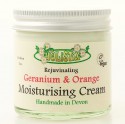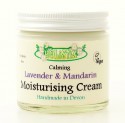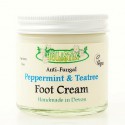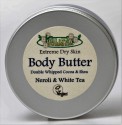- Catalogue
- Therapeutic Balms
- Moisturising Creams
- Bodycare Spa
- Hand-crafted Soap
- Roll-On Aromatherapy
- Sample Pack
- Essential Oils
- Carrier / Infused Oils
- Gifts
- Festive
- Sundries
- Hair Care
- Dental Care
- Deodorants
- Sanitaryware
- Salcura Bioskin
- Herbal Ointments
- Herbal Teas
- Supplements
- Optibacs Probiotics
- Superfoods
- Eco-Home
- Gift Vouchers
- Information
- About Us
- Testimonials
- Delivery Info
- Contact
- Links
IMPORTANT HEALTH INFORMATION
Holistix is proud to provide high quality pure health products you can trust. The ingredients are clearly listed together with advice or any caution on the label. Extra care must be taken when using any products on children, pregnant or breastfeeding women, as higher dilutions apply and some are to be avoided. Note for nut allergy sufferers, some products contain almond oil. Advice should be sought if currently on medication.
Herbs, tinctures and essential oils are traditional remedies, and receive Traditional Remedy Exemption, allowing the consumer to purchase these over the counter without prescription. Herbs have been used therapeutically for many years, but law requires that the herbal products we sell make no therapeutic or medicinal claim. It is the responsibility of the consumer to do their own research into Herbs and Essential Oils, and it may be advisable to seek advice from a herbal practitioner if need be before using these products. Holistix cannot take responsibility for side-effects due to not reading the labels or consulting a practitioner first.
General advice to consumers on the use of herbal remedies
Remember that herbal remedies are medicines. As with any other medicine they are likely to have an effect on the body and should be used with care.
If you think that you may have suffered an adverse reaction to a herbal remedy you should tell your doctor or pharmacist.Herbal remedies may sometimes interact with other medicines making these medicines more or less effective. This makes it particularly important to tell your doctor or pharmacist if you are taking a herbal remedy with other medicines such as prescribed medicines (those provided through your doctor or dentist).
Treat with caution any suggestion that a herbal remedy is '100% safe' or is 'safe because it is natural'. Many plants, trees, fungi and algae can be poisonous to humans. It is worth remembering that many pharmaceuticals have been developed or derived from these sources because of the powerful compounds they contain. Any medicine, including herbal remedies, which have an effect on the body should be used with care.
Treat with caution any herbalist or other person who supplies herbal remedies if they are unwilling or unable to provide written information, in English, listing the ingredients of the herbal remedy they are providing.
If you are due to have a surgical operation you should always remember to tell your doctor about any herbal remedy that you are taking.Anyone who has previously experienced any serious health complaint is advised not to take any herbal remedy without speaking to their doctor first. …Written by medicines.mhra.gov.uk
Herbs to avoid during pregnancy.
Herbal remedies are considered natural alternatives to certain drugs, but they can also be dangerous when taken during pregnancy. While a cup of chamomile tea is perfectly safe for a mum-to-be, many herbs contain chemicals that can cross the placenta to your baby, and some can cause premature contractions.
As with all medications, you should avoid taking any herb during the first trimester and use only minimal amounts for short periods of time thereafter, and then only when needed. If you wish to use herbs to treat a problem (rather than to ease symptoms of minor conditions such as heartburn), see a qualified herbalist. And always talk to your obstetrician or midwife before taking any herb or medicine during pregnancy.
Please note: Before taking any over-the-counter herbal remedy, remember to check its contents against the following list of plants to avoid in pregnancy, and carefully note all of the individual cautions given for the herbs in the following sections. You could print out a copy for future reference.
Herbs to completely avoid during pregnancy:
- Aloe Vera - The leaves are strongly purgative and should not be taken internally.
- Arbor vitae (Thuja occidentalis) - A uterine and menstrual stimulant that could damage the fetus.
- Autumn crocus (Colichicum autumnale) - Can affect cell division and lead to birth defects.
- Barberry (Berberis vulgaris) Contains high levels of berberine, known to stimulate uterine contractions.
- Basil oil - A uterine stimulant; use only during labour.
- Beth root (Trillium erectum) - A uterine stimulant; use only during labour.
- Black cohosh (Cimicifuga racemosus) - May lead to premature contractions; avoid unless under professional guidance. Safe to use during childbirth.
- Bloodroot (Sanguinaria canadensis) - A uterine stimulant that in quite small doses also causes vomiting.
- Blue cohosh (Caulophyllum thalictroides) - A uterine stimulant to avoid unless under professional guidance. Safe to use during childbirth.
- Broom (Cytisus scoparius) - Causes uterine contractions so should be avoided during pregnancy; in parts of Europe it is given after the birth to prevent blood loss. Bugleweed (ycopus virginicus) - Interferes with hormone production in the pituitary gland, so best avoided.
- Clove oil - A uterine stimulant used only during labour.
- Comfrey (Symphytum officinale) - Contains toxic chemicals that will cross the placenta; do not take internally.
- Cotton root (Gossypium herbaceum) - Uterine stimulant traditionally given to encourage contractions during a difficult labour, but rarely used medicinally today.
- Devil's claw (Harpagophytum procumbens) - Uterine stimulant, oxytocic.
- Dong quai (Angelica polymorpha var. sinensis) - Uterine and menstrual stimulant, best avoided during pregnancy; ideal after childbirth.
- False unicorn root (Chamaelirium luteum) - A hormonal stimulant to avoid unless under professional guidance.
- Feverfew (Tanacetum parthenium) - Uterine stimulant; may cause premature contractions.
- Golden seal (Hydrastis canadensis) - Uterine stimulant; may lead to premature contractions but safe during childbirth.
- Greater celandine (Chelidonium majus) - Uterine stimulant; may cause premature contractions.
- Juniper and juniper oi (Juniperus communis) - A uterine stimulant; use only during labour.
- Lady's mantle (Alchemilla xanthoclora) - A uterine stimulant; use only in labour.
- Liferoot (Senecio aureus) - A uterine stimulant containing toxic chemicals that will cross the placenta.
- Mistletoe (Viscum album) - A uterine stimulant containing toxic chemicals that may cross the placenta.
- Mugwort (Artemesia vulgaris) - A uterine stimulant that may also cause birth defects; avoid unless under professional guidance. Also avoid when breastfeeding.
- American pennyroyal (Hedeoma pulegioides) - Reputed uterine stimulant to be avoided during pregnancy.
- European pennyroyal (Mentha pulegium) - A uterine stimulant that may also cause birth defects; avoid unless under professional guidance. Also avoid when breastfeeding.
- Peruvian bark (Cinchona officinalis) - Toxic; excess may cause blindness and coma. Used to treat malaria and given during pregnancy only to malaria sufferers under professional guidance.
- Pokeroot (Phytolacca decandra) - May cause birth defects.
- Pseudoginseng (Panax notoginseng) -May cause birth defects.
- Pulsatilla (Anemone pulsatilla) - Menstrual stimulant best avoided during pregnancy; limited use during lactation.
- Rue (Ruta graveolens) - Uterine and menstrual stimulant; may cause premature contractions.
- Sassafras (Sassafras albidum) - A uterine stimulant that may also cause birth defects.
- Shepherd's purse (Capsella bursa-pastoris) - A uterine stimulant; use only during labour.
- Southernwood (Artemisia abrotanum) - A uterine stimulant that may also cause birth defects; avoid unless under professional guidance. Also avoid when breastfeeding.
- Squill (Urginea maritima) - A uterine stimulant that may also cause birth defects.
- Tansy (Tanacetum vulgare) - A uterine stimulant that may also cause birth defects.
- Wild yam (Diascorea villosa) - A uterine stimulant to avoid unless under professional guidance; safe during labour.
- Wormwood (Artemisia absinthum) - ?














